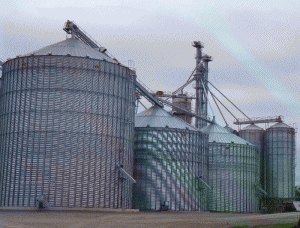Get to know us
FROM THE CEO'S DESK

I WAS TRAVELLING across the province to the annual district grain committee meetings when the Environmental Commissioner released comments on coloured diesel.
For those who aren’t aware of this issue, in mid-January, Ontario’s Environmental Commissioner, Dianne Saxe, referred to coloured diesel for agriculture as a subsidy that should be discontinued. Her comments are highly concerning. Let’s be clear, this is an exemption and it is one that other provinces and our competitors in the U.S. receive. Ontario is not — and should not be — unique in regards to coloured diesel rules.
Farmer-members haven’t even yet felt the full impact of the seed treatment regulations brought into law last July, and we are hit with another attack on the way we do business and the tools we have to keep us competitive.
Mark Brock, chair of Grain Farmers of Ontario, sent a letter to the commissioner in response to these comments. We shared that letter via Twitter January 18, 2016, and saw the most activity on @GrainFarmers in recent times. It’s clear to me that farmer-members are unsettled with the provincial leadership.
The diesel comments are highly concerning, as the impact to any individual farmer’s bottom line could be significant. It’s easy for any of us to do the math and quickly see the thousands of dollars per year this tax exemption results in and recognize what impact that will have on our profit margins. You can read Mark Brock’s letter to the Environmental Commissioner at www.gfo.ca/eco.
The larger concern, however, is the new reality we are living in today. We have provincial leaders and government officials that have a high comfort level commenting on agricultural practices and policies, without first consulting with anyone in agriculture. There is a lack of agricultural expertise and ties to agriculture within our provincial government, and there appears to be limited interest from these leaders in taking the time to gain that knowledge and insight.
In this case, we don’t know what caused the topic of coloured diesel to bubble to the surface and why the commissioner deemed it to be a key issue. We are also troubled that agriculture first heard of her position on coloured diesel through media, rather than through dialogue and conversation with those of us who are stakeholders.
Is it too much to ask that our provincial leaders take the time to get to know an issue before commenting on it? We know for certain that there are 28,000 grain farmers who want to be considered and heard before government decisions are made that impact their farm businesses. •


















